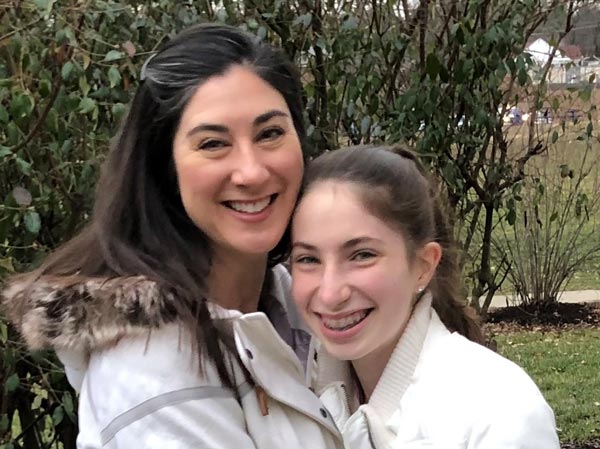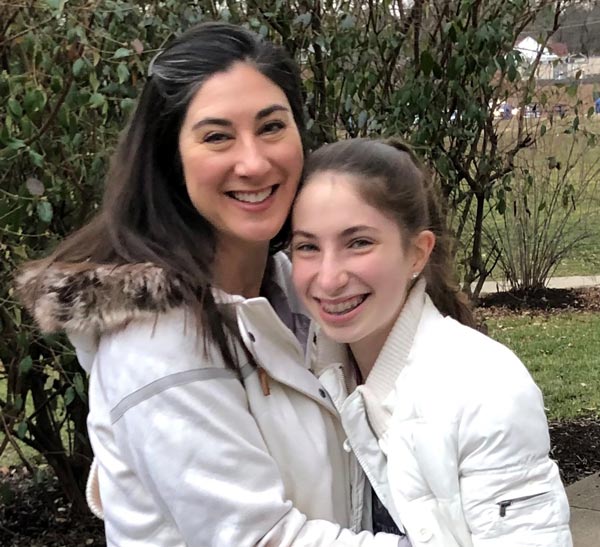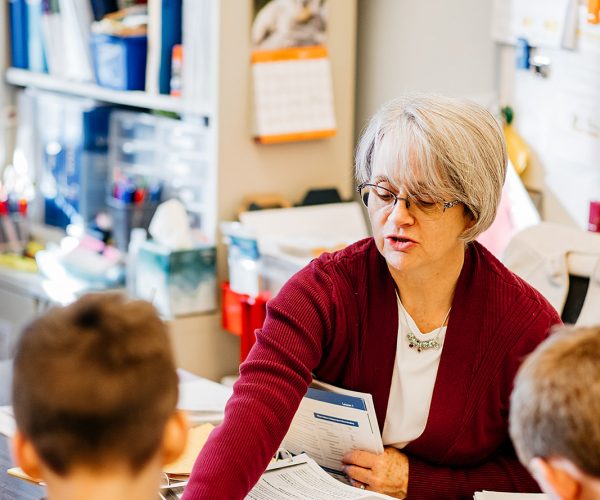
Monitoring Technology Use at Home: Advice from Parents
January 5, 2021
Having a Learning Disability Shouldn’t Be Shameful! Part 2
January 19, 2021Part 1: Introducing Maureen and Ava
It is always a pleasure to spend time talking with Springer parents. I especially enjoyed hearing about Maureen’s experiences - from the day her daughter entered Springer’s doors to the present day.
This story, not unlike many of our Springer stories, takes place over five years’ time. Ava has progressed and matured so much, and it is important that we notice that each moment, each day, and each year and honor that they culminate into a beautiful and full experience for our Springer students and our families.
Let’s hear about the Springer Experience, in Maureen’s words…
Ava’s struggles were first pointed out to me in preschool. The input from the teachers was that my daughter wasn’t speaking a lot and was having difficulty with numbers and letters. We were continually urged to read with her more, which we did to no avail.
In elementary school, Ava received an IEP, where she was pulled out of math to work on reading for one hour a day (inadvertently sacrificing one subject for another). Even though dyslexia is not an IQ deficiency, Ava was given books to write assessments on that were way under her comprehension level, widening the cumulative gap between her and her peer’s education. Ava’s IEP teacher and I repeatedly coached Ava to advocate for herself and ask for assistance when she needed it. One day Ava came home and relayed that she had raised her hand for an entire class without being called on, thwarting our efforts. Ava anxiously relied on finding kind classmates to read in-class assignments to her. I could see that Ava was starting to believe that she was innately shameful - a burden on people’s time, efforts, and kindness.
Because reading is a basic requirement for each subject, and Ava could not read, stumbling through each day was traumatic. The typical public school is just not set up to teach a child that can’t read. Ava’s self-esteem was getting worse each day and I feared that Ava would come to despise everything about school and learning. The school was accommodating Ava as best they could, but by mid-3rd grade, we could not let her flounder any longer.
At Springer, each classroom has systems in place so that each child can learn the subject at hand, regardless of their disability. Additionally, each class incorporates accommodations that actively help the child to overcome their disadvantages. Once Ava switched to Springer, every single teacher that Ava encountered understood her disability. She didn’t have to rely on her peers to get through each class. She was given tools to read books that challenged her mind while helping her learn how to read. An entire chorus of people helped to sing to Ava about the advantageousness of advocating for herself.
Thanks to five years at Springer, Ava’s been flourishing for some time now. She’s developed an identity about being dyslexic - and it isn’t a horrible thing. She has a deep understanding of herself, recognizing both her talents and challenges, and can honestly speak to anyone about them. She knows she’s valuable, regardless of her strengths and weaknesses.
I think it’s important to emphasize that Springer has encouraged Ava to know her strengths. Becoming familiar with her assets has helped Ava to have a full understanding of how to manage her dyslexia. She can sit in a classroom and know what actions she needs to take (in and out of the classroom) to keep pace. She asks questions and knows that there is no shame in speaking up and advocating for herself. She genuinely loves to learn, read, and study!

I believe the faculty and staff at Springer is the most invaluable variable. My heart has a special place for these hard-working, well-educated, talented, and compassionate people. My daughter is cherished for who she is and what she can do. Being able to see the light in my child, and every child, is a gift that Springer gives abundantly. Springer’s helped my daughter to discover her best self. I truly can’t be grateful enough for this. And a bonus for me was having what felt like a friend in the IEP meetings - a professional whose single priority was nailing down what was best for my daughter. For me, the Springer difference is the people - and the people are fabulous!
I’m already missing Springer. They have gently guided us along this journey; however, I absolutely love the excitement in Ava’s eyes as she confidently tells me that she’s ready… ready for the world! …or at least High School.
On a final note, to any parents who are reading this, I only regret one thing. I wish I had called Springer earlier and Ava had started attending earlier (like day one of 1st grade!) because the healing started from day one for Ava - and me too. If you identify with this story, I encourage you to take action for your loved one - and yourself! You won’t regret getting to know Springer!
Blogger and Director of Learning Programs, Carmen Mendoza, MEd, shares her expertise in understanding students with learning disabilities. If you have questions, please contact Carmen at .




2 Comments
Does your child with ADHD , have to have a learning disability to attend Springer?
Hi Patty. Great question. Usually, a child with ADHD shows some struggle with academic subjects. With a close inspection from our admissions team, we would look at the information provided to determine if Springer would be a fit. We review evaluations, assessments, report cards, and other pertinent information about the child to help support any decision that is made between the family and Springer.